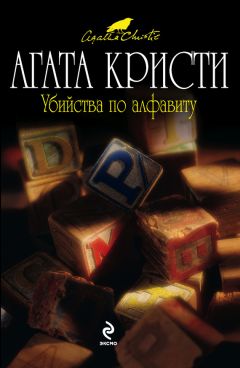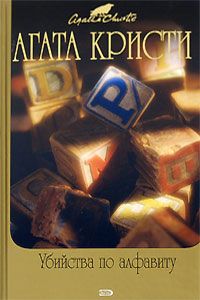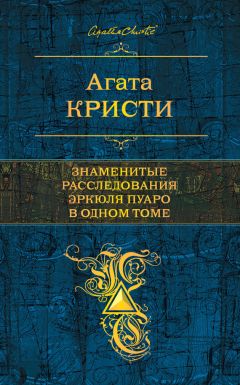Agatha Christie - Английский язык с Агатой Кристи. Убийства по алфавиту
Like a flash Megan Barnard was out of the kitchen (как молния Меган Барнард выбежала из кухни: «была вне кухни»), and a couple of seconds later she was back again (и пару секунд спустя она снова вернулась) leading Donald Fraser by the hand (ведя Дональда Фрейзера за руку).
trill [trɪl], lean [li:n], flash [flæʃ]
An electric bell trilled sharply above, the girl's head. She went to the window and leaned out. She drew back her head sharply.
"It's Don."
"Bring him in here," said Poirot quickly. "I would like a word with him before our good inspector takes him in hand."
Like a flash Megan Barnard was out of the kitchen, and a couple of seconds later she was back again leading Donald Fraser by the hand.
XII. Donald Fraser
I felt sorry at once for the young man (я сразу почувствовал жалость к молодому человеку). His white haggard face (его белое измученное лицо) and bewildered eyes showed (и ошеломленные глаза показывали) how great a shock he had had (какое большое потрясение он пережил).
He was a well-made (он был хорошо сложенным), fine-looking young fellow (утонченным молодым человеком), standing close on six foot[21] (достигающим примерно шести футов /ростом/: «стоявшим ближе к шести футам»), not good-looking (не привлекательным), but with a pleasant (но с приятным), freckled face (веснушчатым лицом; freckle — веснушка), high cheekbones (высокими скулами) and flaming red hair (и пылающими = огненными рыжими волосами).
"What's this, Megan?" he said (что такое, Меган?). "Why in here (почему сюда)? For God's sake (ради Бога), tell me (скажи мне) — I've only just heard (я только что услышал) — Betty."
His voice trailed away (его голос затих; to trail — протаптывать (тропинку), прокладывать путь; волочить/ся/, тащить/ся/).
Poirot pushed forward a chair (Пуаро выдвинул стул) and he sank down on it (и он опустился на него).
freckle [frekl], sake [seɪk], trail [treɪl]
I felt sorry at once for the young man. His white haggard face and bewildered eyes showed how great a shock he had had.
He was a well-made, fine-looking young fellow, standing close on six foot, not good-looking, but with a pleasant, freckled face, high cheekbones and flaming red hair.
"What's this, Megan?" he said. "Why in here? For God's sake, tell me — I've only just heard — Betty."
His voice trailed away.
Poirot pushed forward a chair and he sank down on it.
My friend then extracted a small flask from his pocket (мой друг тогда вынул маленькую фляжку из кармана), poured some of its contents into a convenient cup (налил некоторое количество ее содержимого в подходящий стакан; convenient — удобный, подходящий, пригодный; cup — чашка; бокал, кубок) which was hanging on the dresser (стоявший на буфете; to hang — висеть; болтаться; стоять на выставке; dresser — буфет; комод с зеркалом) and said: "Drink some of this, Mr. Fraser (выпейте немного этого, мистер Фрейзер). It will do you good (это пойдет вам на пользу)."
The young man obeyed (молодой человек повиновался). The brandy brought a little colour back into his face (бренди вернул немного румянца: «цвета» на его лицо). He sat up straighter (он сел прямее) and turned once more to the girl (и еще раз повернулся к девушке). His manner was quite quiet and self-controlled (он вел себя достаточно тихо и владел собой: «его поведение было достаточно тихо и /было/ под его контролем»).
"It's true, I suppose (это правда, я полагаю)?" he said. "Betty is — dead (мертва) — killed (убита)?"
"It's true, Don."
He said as though mechanically (он сказал как будто машинально): "Have you just come down from London (ты только что приехала из Лондона)?"
"Yes. Dad phoned me (папа позвонил мне)."
"By the 9:20, I suppose?" said Donald Fraser (/поездом/ на девять двадцать, я полагаю).
convenient [kǝnˈvi:nɪǝnt], obey [ǝˈbeɪ], colour [ˈkʌlǝ]
My friend then extracted a small flask from his pocket, poured some of its contents into a convenient cup which was hanging on the dresser and said: "Drink some of this, Mr. Fraser. It will do you good."
The young man obeyed. The brandy brought a little colour back into his face. He sat up straighter and turned once more to the girl. His manner was quite quiet and self-controlled.
"It's true, I suppose?" he said. "Betty is — dead — killed?"
"It's true, Don."
He said as though mechanically: "Have you just come down from London?"
"Yes. Dad phoned me."
"By the 9:20, I suppose?" said Donald Fraser.
His mind (его ум), shrinking from reality (избегая реальности; to shrink — избегать, уклоняться), ran for safety along these unimportant details (бежал в безопасность по этим незначительным деталям: «вдоль этих…»).
"Yes."
There was silence for a minute or two (минуту или две была тишина), then Fraser said (затем Фрейзер сказал): "The police (полиция)? Are they doing anything (они делают что-нибудь)?"
"They're upstairs now (они сейчас наверху). Looking through Betty's things (осматривают вещи Бетти), I suppose (я полагаю)."
"They've no idea who (у них нет идеи, кто) —? They don't know (они не знают) —?" He stopped (он остановился).
He had all a sensitive, shy person's (у него была, как у всех чувствительных, застенчивых людей) dislike of putting violent facts into words (нелюбовь облекать жестокие факты в слова).
Poirot moved forward a little (Пуаро немного продвинулся вперед) and asked a question (и задал вопрос). He spoke in a businesslike (он говорил деловым), matter-of-fact voice (сухим голосом; matter-of-fact — основанный на фактах, сухой, прозаичный; лишенный фантазии) as though what he asked was an unimportant detail (как-будто /то/, что он спрашивал, было незначительной деталью; important — важный).
safety [ˈseɪftɪ], sensitive [ˈsensɪtɪv], shy [ʃaɪ]
His mind, shrinking from reality, ran for safety along these unimportant details.
"Yes."
There was silence for a minute or two, then Fraser said: "The police? Are they doing anything?"
"They're upstairs now. Looking through Betty's things, I suppose."
"They've no idea who —? They don't know —?" He stopped.
He had all a sensitive, shy person's dislike of putting violent facts into words.
Poirot moved forward a little and asked a question. He spoke in a businesslike, matter-of-fact voice as though what he asked was an unimportant detail.
"Did Miss Barnard tell you (мисс Барнард сказала вам) where she was going last night (куда она собиралась прошлой ночью)?"
Fraser replied to the question (Фрейзер ответил на вопрос). He seemed to be speaking mechanically (казалось, он говорил машинально). "She told me (она сказала мне) she was going with a girl friend to St. Leonards (что она собирается с подружкой в Сент-Леонардс)."
"Did you believe her (вы ей поверили)?"
"I —" Suddenly the automaton came to life (неожиданно автомат вернулся к жизни). "What the devil do you mean (какого дьявола = что, черт побери, вы имеете в виду)?"
His face then (его лицо тогда), menacing (зловещее), convulsed by sudden passion (искаженное от внезапной ярости), made me understand (заставило меня понять) that a girl might well be afraid of rousing his anger (что девушка, вероятно, могла бояться пробудить его гнев; to rouse — будить; возбуждать; выводить из себя).
Poirot said crisply (Пуаро твердо сказал; crisply — решительно, твердо): "Betty Barnard was killed by a homicidal murderer (Бетти Барнард была убита маньяком-убийцей). Only by speaking the exact truth can you help us to get on his track (только говоря полную правду, вы нам можете помочь напасть на его след)."




